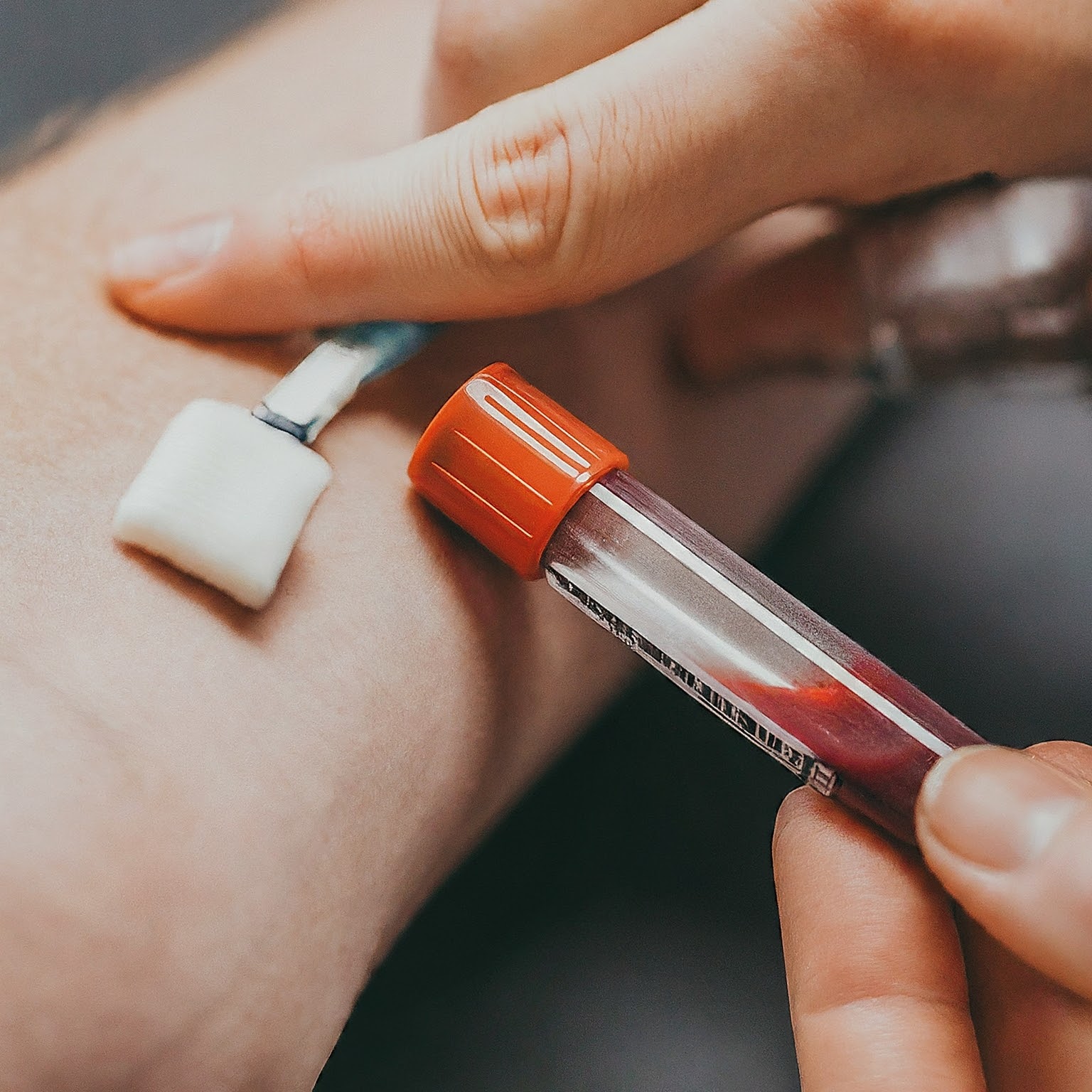- 28 May 2024
- 408
Blood Test for Colon Cancer: Alternative to Colonoscopy?

Intriguing Introduction
Hi everyone! I’m Dr. Amelia Jones, a gastroenterologist with over 15 years of experience. Let’s face it, colonoscopies aren’t exactly a picnic. While they remain the gold standard for colon cancer screening, I understand why many people avoid them due to the prep process and potential discomfort. The good news is, the medical field is constantly evolving, and exciting new possibilities are emerging in the realm of colon cancer detection. Today, we’ll delve into the world of blood tests for colon cancer screening – a potential game-changer for those seeking a more convenient and less invasive approach.
Informative Headings
- Colon Cancer: A Silent Threat
- Why Screen for Colon Cancer?
- The Colonoscopy: The Current Standard
- Blood Tests for Colon Cancer: A New Dawn?
- Types of Blood Tests for Colon Cancer Screening
- Blood Test vs. Colonoscopy: Weighing the Options (Comparison Table)
- The Future of Colon Cancer Screening: A Blend of Options
- Key Takeaways and Practical Steps
Blood in, Answers Out: Could a Simple Test Replace the Colonoscopy?
Colon Cancer: A Silent Threat
Colon cancer is the second leading cause of cancer-related deaths in the United States, affecting millions of people globally [1]. Often dubbed the “silent killer,” it can progress for years without noticeable symptoms. Early detection is crucial for successful treatment, making regular screening paramount.
Why Screen for Colon Cancer?
Early detection significantly improves the prognosis for colon cancer. Screening tests help identify precancerous polyps, allowing for their removal before they develop into cancer. This reduces your risk of developing the disease and ultimately saves lives.

The Colonoscopy: The Current Standard
For decades, colonoscopy has been the go-to method for colon cancer screening. During this procedure, a healthcare professional inserts a long, flexible tube with a camera attached to examine the entire length of your colon. While highly effective, colonoscopies require bowel preparation, which can be unpleasant, and carry certain risks associated with any invasive procedure.
Blood Tests for Colon Cancer: A New Dawn?
The prospect of a simple blood test for colon cancer screening is exciting news for many. These innovative tests analyze your blood for specific markers that might indicate the presence of cancer or precancerous polyps. While still under development, they hold immense promise for improving screening adherence and early detection rates.
Types of Blood Tests for Colon Cancer Screening
Several blood tests for colon cancer screening are undergoing research and development. Some examples include:
- Multi-target stool DNA tests: These tests analyze your stool for genetic changes associated with colon cancer.
- Blood-based DNA methylation tests: These tests look for specific DNA patterns in your blood that may be linked to cancer.
- Protein biomarker tests: These tests measure levels of certain proteins in your blood that might be elevated in individuals with colon cancer.
Blood Test vs. Colonoscopy: Weighing the Options (Comparison Table)
| Feature | Blood Test | Colonoscopy |
|---|---|---|
| Invasive? | No | Yes |
| Preparation Required? | No | Yes (bowel prep) |
| Discomfort Level | Low | Moderate (may require sedation) |
| Accuracy | Emerging technology (accuracy improving) | Highly accurate |
| Cancer Detection | May detect early-stage cancer | Can detect and remove polyps |
| Cost | Potentially lower in the future | Varies depending on insurance |
The Future of Colon Cancer Screening: A Blend of Options
While blood tests hold promise, they are not currently a replacement for colonoscopies. Their accuracy is still evolving, and they may not detect all types of colon cancer. The future likely lies in a personalized approach, where doctors recommend the most suitable screening method based on individual risk factors and preferences.
Key Takeaways and Practical Steps
- Colon cancer is a serious threat, but early detection saves lives.
- Blood tests offer a promising, less-invasive approach to colon cancer screening.
- Talk to your doctor about your risk factors and the best screening options for you.
- Regardless of the method, regular screening is crucial for early detection and successful treatment.
Empowering you with knowledge
- Know your family history: Having a close relative with colon cancer increases your risk. Discuss this with your doctor during your next appointment.
- Maintain a healthy lifestyle: Diet, exercise, and weight management can all contribute to a lower risk of colon cancer.
- Don’t delay due to discomfort: A colonoscopy might be inconvenient, but the potential benefits far outweigh the temporary discomfort. There are also options for sedation during the procedure.
- Stay informed on advancements: The field of colon cancer screening is constantly evolving. Keep yourself updated on the latest developments in blood tests and other screening options.
Conclusion
The emergence of blood tests for colon cancer screening offers a ray of hope for those who dread colonoscopies. While not a complete replacement yet, these tests offer a potential future where screening becomes more accessible and convenient. Remember, the best approach depends on your individual circumstances. Always prioritize a conversation with your doctor to determine the most suitable screening method for you. By working together, we can empower ourselves with knowledge and take control of our colon health.

